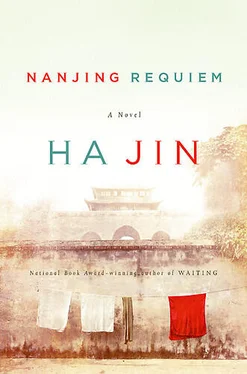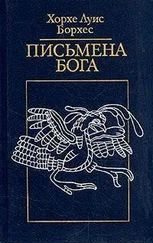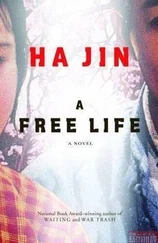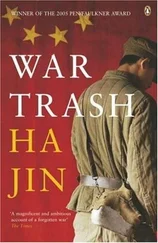“We only treat people with gunshot and bayonet wounds. I feel like a butcher, doing nothing but cutting and stitching bodies.” He lifted the satchel of insulin, put it on the table, and told Rabe, “Use them soon — they’ll expire in a year.”
“I will. Thanks very much,” Rabe said.
While people were talking, Searle Bates dozed off in a chair in a corner, his veiny hand still holding a teacup. His bumpy Adam’s apple jigged from time to time. Usually he was the most convivial one among the Americans, thanks to his sharp wit and vast learning, but this afternoon he was too exhausted to remain on his feet. These days, besides managing the camps at Nanjing University, he drove a truck to deliver rice and firewood and coal to porridge plants within the Safety Zone, which fed more than two hundred thousand refugees. Because only foreigners could transport the rations without being robbed, Searle and several others had to do the driving. Now none of us disturbed him.
When the party was about to end, Minnie suggested that Allison leave first because he had a Japanese guard in tow, so the diplomat left before the others. Then Rulian came in and, her almond-shaped eyes smiling, whispered to me that some women gathering outside wanted to say farewell to Rabe.
I went up to him and said, “Mr. Rabe, some women in our camp want to say good-bye to you. Can you spare a minute?”
“Okay, I’m coming.” He drained his cup, then followed us to the door. The others were also coming out.
What we saw in front of the Science Building staggered us. More than three thousand women and girls were kneeling on the ground, wailing and begging, “Please don’t go! Please don’t abandon us!”
“Don’t leave us in the lurch!” a voice rang out.
“Don’t stop protecting us!” shouted another.
Rabe was flustered. He approached the front row of the crowd and said, “Please get up.”
But none of the women budged. He bent down a little and said a few more words in English to them; still nobody moved. Then he bowed three times to the crowd in the Chinese fashion. He straightened up and waved at the women and girls, some of whom were crying louder now. He asked Minnie, “What should I do?”
“Say something to them.”
“What can I say? There’s no way I can justify my leaving. If only I could stay like you.” He swallowed, a film of sweat on his broad forehead. Unable to speak Chinese, he turned to the crowd and made another three deep bows.
Still, the crowd wouldn’t get up and many kept crying. Rabe said to Minnie, “I’d better go.”
“Okay, this way. You can use the side gate,” said Minnie.
I beckoned Luhai over and told him to open that small exit for Rabe. Rabe followed him along the roofed path and went out of the yard through a moon gate, leaving his car behind. He had to walk all the way home, as did the other guests.
Afterward Minnie talked about the crowd with me. “I didn’t expect they’d have such deep feelings for John Rabe.”
“Yes, they’re more than grateful,” I said. “Also, they must be scared and want to be protected.”
To many of the women and girls, Rabe must have been like a protective father who had never hesitated to confront the soldiers and even risk his own life. He was more than a hero to the refugees.
ONE AFTERNOON in late February, a fortyish refugee woman named Sufen came to the president’s office and said she had spotted her fifteen-year-old son in a labor gang in the Model Prison downtown. Surprised, Minnie asked her, “Are you sure he was your son?”
“Absolutely, he called me Ma and hollered he missed home. Principal Vautrin, please help me — help get him out of jail.”
“Relax. Tell us more about that place.”
That stumped Sufen, who turned tongue-tied.
“How many men are in there?” I asked her, having stepped out of the other inner room, which was my office.
“Hundreds, some wearing burlap sacks like rain ponchos. Some are just teenage boys like my son.” As she spoke, Sufen’s large eyes shone with excitement and her sunburned nose quivered. I knew she had filed her petition with Big Liu.
“What else did your son tell you?” Minnie went on.
“Nothing more. Two guards took them away before he could say another word. I’m gonna wait for him there tomorrow morning.”
“Try to find out something about the other men too.”
“Sure I will.”
“Don’t tell others you saw your son there yet. We must figure out what to do before we spread the word.”
“I’ll do whatever you say.”
I admired Minnie’s discretion. If we broke the news at once, we might bring about a chaos among the petitioners that Big Liu and his team would not be able to handle.
Sufen dragged herself out of the office, her shoulders bent and her knees knocking a little as she walked. I remembered speaking with her weeks ago, and knew that she had come with a group of refugees from Danyang and that her husband was a chef in the Nationalist army, though the man was somewhere in the southwest of China now. That made me feel closer to her because my son-in-law was also in the army. Sufen told me that a shell had landed in her backyard and killed her mother-in-law, who had been feeding a milk goat there. The moment Sufen and her son carried the old woman indoors and covered her with a sheet, word came that the Japanese were approaching. So she and the boy took flight with the other villagers. But before reaching the road that led to a nearby town, they were intercepted by a company of soldiers, who detained all the able-bodied men among them, saying that the Imperial Army needed “many, many hands” and would give them good food and pay them handsomely. Sufen begged an officer to spare her son. He was just a kid, not even fifteen yet, skinny like a starved chicken. “Please, please don’t take him away!” she pleaded, holding both hands together before her chest. But the heavyset officer kicked her and threatened to cut off her ear if she made any more noise. She was too frightened to say another word, and all she could do was give the boy the biscuits and water she carried.
Now the information about her son in the Model Prison, a standard penitentiary built by the Nationalist government but used as a military jail by the Japanese, cast a ray of hope on the petition. It also made me see the reason for Minnie’s insistence on the endeavor. If my son were behind bars, I’d have done anything to get him out. I thought that I ought to be more involved in helping those poor mothers and wives.
Minnie and I wondered if the jail also held other men and boys belonging to some petitioners’ families. She called together Big Liu, Holly, and me and floated the idea of sending scores of women to the Model Prison to see if they could find their menfolk as well. Both Big Liu and Holly thought that this might be too rash and might endanger the women.
I believed that we could make the petition a much stronger case if more men and boys were found in that jail. Maybe we could send over just three or four plain-looking women? I suggested. They all seconded my suggestion.
With the help of Lewis Smythe, Minnie got in touch with Dr. Chu, who had his clinic in the center of downtown and was well connected and eager to help the women get their menfolk back. Most of the foreigners thought highly of this man, though I had mixed feelings about him. He had earned his medical degree from the University of Leipzig and spoke fluent German but very little English. Reverend Magee said Dr. Chu was warm and trustworthy — unlike most Chinese, he never minced his words and always cut to the chase. Despite working for the Autonomous City Government, he had a decent reputation among the locals, partly because he held no official title and spent most of his time seeing patients. Magee had recommended him to several Americans as a family physician. On a windy afternoon in early March, Minnie and I arrived at his office downtown, carrying the six hundred signatures and thumbprints of the petitioners.
Читать дальше











